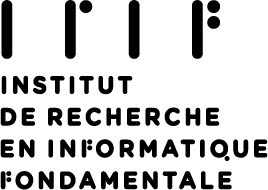Technical History of Discrete Logarithms in Small Characteristic Finite Fields
Due to its use in cryptographic protocols such as the Diffie-Hellman key exchange, the discrete logarithm problem attracted a considerable amount of attention in the past 40 years. In this talk, we summarize the key technical ideas and their evolution for the case of discrete logarithms in small characteristic finite fields. This road leads from the original belief that this problem was hard enough for cryptographic purpose to the current state of the art where the algorithms are so efficient and practical that the problem can no longer be considered for cryptographic use.
Tossing a Collective Coin and Coming to Agreement
Over 35 years ago, Leslie Lamport formulated a fundamental problem of coordination in a distributed network. He asked us to imagine an army led by generals, who send messages to each other with the goal of coming to agreement on a strategy. Planted among those generals are spies who seek to thwart this goal. Not long after this Byzantine agreement problem was presented, there were a few developments: an impossibility result for any deterministic scheme, a randomized exponential time algorithm, and a demonstration that one globally known coin toss could solve the problem in constant expected time.
Some researchers turned to the use of committed secret coinflips via cryptography, while others turned to the study of collective coin flipping with full information. Recently, interest in efficient Byzantine agreement has arisen in the context of decentralized digital currency systems.
I will describe joint work with Jared Said and others on efficient algorithms for Byzantine agreement, including the first polynomial expected time algorithm for this problem in a fully asynchronous model where the adversary has full information, which is obtained by solving a new collective coin flipping problem.


 pdf
pdf  txt
txt



